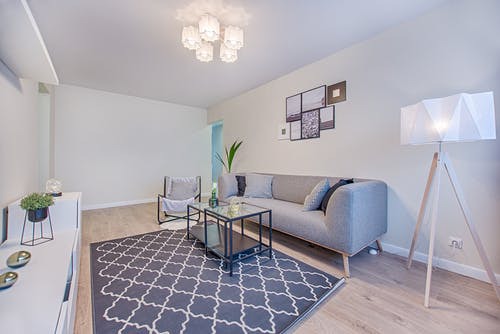
When it’s time for medical boarding, numerous pet owners face the challenge of managing an anxious furry companion. The shift in surroundings and encountering unfamiliar individuals and strange odors may provoke stress in your pet. However, don’t worry. There are several effective techniques to alleviate your pet’s anxiety and ensure their experience at the medical facility is as calm and stress-free as possible. By implementing these strategies, you can significantly improve your pet’s comfort during their stay.
What Are the Signs of Pet Anxiety
Before heading into solutions, it’s essential to recognize the signs of anxiety in pets. These might include:
-
Excessive barking or howling
-
Unusual urination or defecation
-
Pacing or shaking
-
Hiding or avoiding interaction
-
Changes in appetite
Knowing these signs allows you to gauge your pet’s stress levels better and respond appropriately.
1. Pre-Boarding Preparation
A little preparation before boarding can go a long way in easing your pet’s anxiety.
Visit the Facility Ahead of Time
Visit the boarding facility with your pet before their stay. Familiarizing them with the environment can reduce nervousness about the unknown.
Create a Comfort Kit
Prepare a kit that includes:
-
Your pet’s favorite blanket or bed
-
A toy they love
-
An item with your scent on it
-
Familiar treats
These familiar items can be comforting for your pet in a new space.
2. Choosing the Right Medical Boarding Facility
When it comes to selecting a facility, not all are created equal. Ensure the place you choose practices appropriate, calm, and compassionate handling.
Facility Tours and Staff Interaction
Schedule a tour to observe the cleanliness of the facility and how the staff interacts with pets and owners. Friendly and knowledgeable staff can make a massive difference in your pet’s care.
Check for Proper Certifications
Ensure the facility has all necessary certifications and staff are trained to deal with anxious pets.
3. Learn Their Specific Medical Services
Some pets may require specialized services during their stay, especially those dealing with health issues needing specific monitoring or medication. Checking if the facility offers services tailored to your pet’s needs is beneficial. Whether administering medications, providing special diets, or managing chronic conditions, understanding the pet medical boarding services provided can give you peace of mind while you are away.
4. Veterinary Care During Boarding
Most boarding facilities have a veterinary healthcare team to look after the pets’ medical needs. Consider boarding facilities with a veterinary internal medicine specialist on staff for pets with more complex health requirements. Such facilities offer more comprehensive care concerning diseases affecting internal organs. Understanding their vet internal medicine services before opting for a facility is crucial for pets needing more sophisticated medical attention.
5. Communication is Crucial
Please stay in the loop regarding your pet’s condition throughout their boarding. Check if the facility offers regular updates via phone or email.
Set Emergency Protocols
Discuss and set clear protocols for emergencies. Knowing who to contact and what actions will be taken can reduce your stress and ensure prompt care for your pet.
6. Mental Stimulation and Physical Comfort
Anxiety can often be managed by keeping pets engaged and comfortable.
Ask About Daily Routines
Ensure the boarding schedule includes sufficient play, physical activity, and relaxation time. Activities that mimic your pet’s usual routine can alleviate anxiety.
Comfortable Accommodations
Well-ventilated spaces that have adequate light and are clean and warm will help make your pet feel more at ease.
7. Learning About On-Site Facilities
Understanding the in-house medical support available at the boarding facility can ease concerns about your pet’s health during their stay.
Pet Lab and Pharmacy
If your pet requires ongoing monitoring or medication, check if the facility includes an integrated lab and pharmacy. These allow for convenient and immediate care tailored to your pet’s medical needs. For more details on what these services include, learn here.
8. Homecoming Transition
Once boarding is over, transitioning back home is the final step in managing your pet’s anxiety.
Ease Back into Routine
Allow your pet to gradually readjust to being home. Maintain a calm environment and slowly reintegrate them into the usual home routine.
9. Nutritional Support and Dietary Considerations
Nutrition plays a vital role in managing your pet’s anxiety and overall health during their stay in medical boarding. Ensuring that your pet receives a balanced diet suited to their specific health needs and preferences can significantly enhance their well-being and comfort.
-
Tailored Dietary Plans: Consult with the boarding facility to see if they offer personalized meal plans that cater to your pet’s dietary requirements, such as food allergies, sensitivities, or specific medical conditions that necessitate a special diet.
-
Familiar Foods: Supply the boarding facility with your pet’s regular food to minimize disruptions in their diet, which can be comforting amidst other unfamiliar experiences. This continuity can help reduce gastrointestinal distress and aid in maintaining a routine that stabilizes their mood.
-
Monitoring Food and Water Intake: Ensure that the facility keeps a diligent record of your pet’s food and water intake. Changes in these can indicate stress or discomfort that must be addressed promptly. Regular monitoring can also ensure that your pet stays hydrated and nourished, which is crucial for their recovery and health during their stay.
Focusing on these nutritional and dietary aspects can help ensure that your pet remains healthy, less stressed, and more comfortable during their medical boarding period.
Final Thoughts
Preparation, choosing the suitable boarding facility, and understanding the services and care your pet will receive can significantly reduce their anxiety. Taking these informed steps ensures that medical boarding becomes a safe haven rather than a stress point for your beloved pet.























































